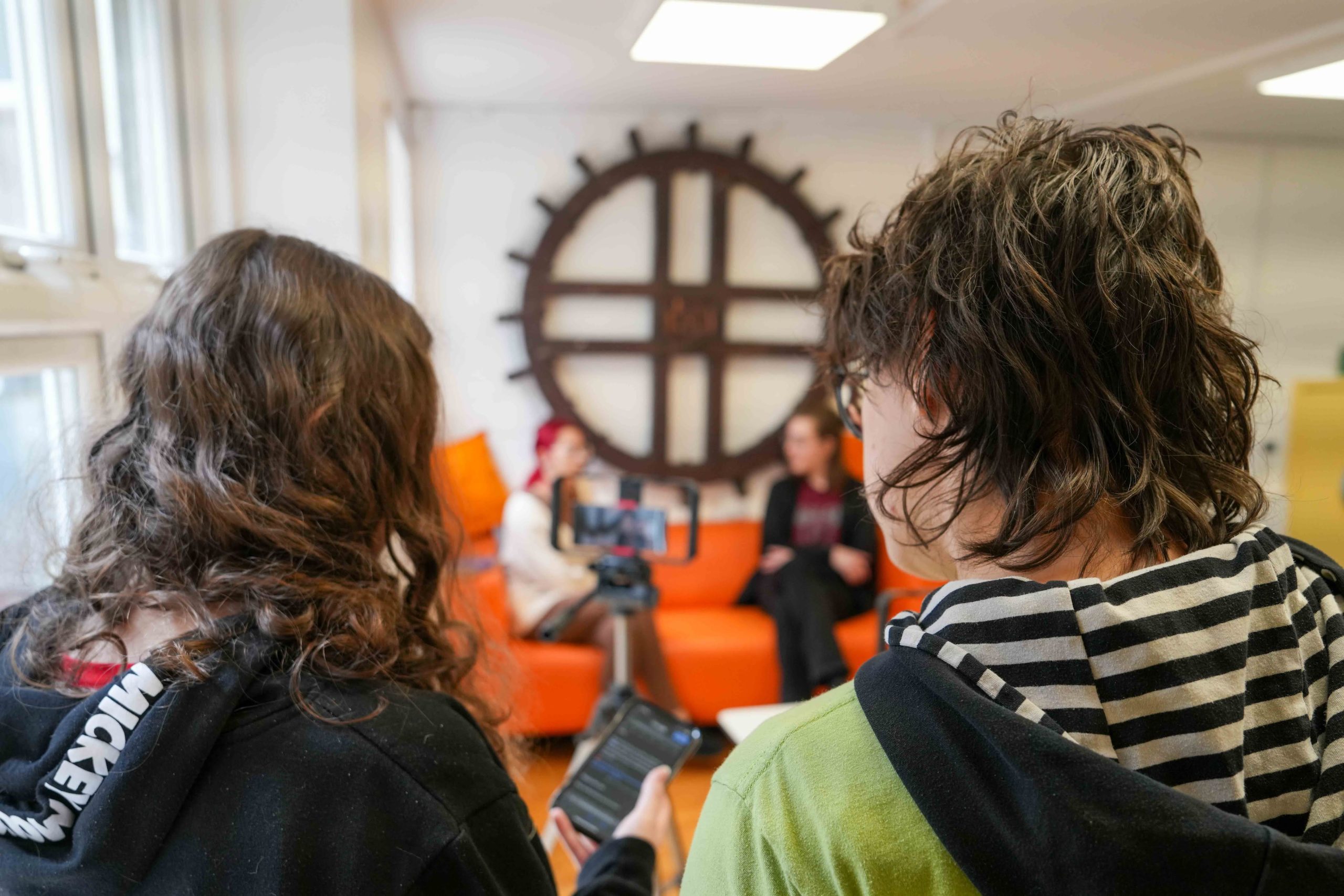
Ofcom – Media Literacy

We supported young people to inform Ofcom’s strategy by educating and talking with their peers on how algorithms shape social media content.

Client
Ofcom

Sector
Public Sector in UK

Partners
BGC Wales
Blaenau Gwent Youth Service

Services
Co-designed Digital Media
Digital Youth Information
Service Design
We’ve been working with Ofcom to provide online media literacy skills to young people in Blaenau Gwent in community settings. We delivered sessions in collaboration with Boys and Girls Club Wales, and Blaenau Gwent Youth Service.
Using a Service Design methodology ProMo Cymru gathered insights into young people’s online behaviours, knowledge, and concerns through online surveys and an in-person focus group to identify gaps in their media literacy needs.
What was the problem?
There is growing evidence that algorithmic systems are significantly impacting the experiences, perspectives and wellbeing of young people in the digital age.
We distributed a survey to 51 young people aged 11 to 14 living in Blaenau Gwent, and some of our key findings were that:
- 47.1% of young people felt like they only had some control over the content they saw online
- 17.6% of young people reported feeling like they had no control or little control
- Only 8% of young people demonstrated an understanding of what a social media algorithm is.
- Only 5% of young people demonstrated an understanding of what an echo chamber / online filter bubble was.
Our approach
We worked with a steering group of young people to co-design and co-deliver 5 workshops in 5 different youth clubs to 85 young people aged 11-14 across Blaenau Gwent.
Together with the steering group, we decided to focus our project on social media algorithms, and particularly on Tiktok, which was the app young people told us they use the most. However, we still recognised the importance of developing an engaging, fun, and memorable intervention that would teach transferable and critical thinking skills that can be applied across a variety of apps, and when online. We wanted the young people who took part to have a more positive time scrolling social media, and to be able to take control of their online space.
We also produced 6 short length TikTok-style videos aimed at raising awareness and providing information on social media algorithms and echo chambers for young people and professionals, and provided resources including our own social media algorithm bingo and snakes and ladders games.
Outcomes
Before the workshops, only 8% of participants showed an understanding of what social media algorithms were, compared to 92% after the workshop.
By the end of the interventions, 97% of young people were able to identify at least 3 actions that influence what they see on their social media feeds.
“I see things I don’t like a lot so now I know how I can change it and stop using it, by using the not interested button, blocking, not clicking on it, or spending time watching it,”
– Young Person, age 12
The project not only had a positive impact on the target group of young people but also influenced the youth workers involved.
ProMo conducted interviews with them following the delivery of the workshops and one significant outcome was a better understanding of algorithms among the professionals themselves.
Through their involvement in the workshops, they gained deeper insights into the mechanics and implications of social media algorithms and echo chambers.
“Prior to this project, my understanding of media literacy and algorithms was limited. I have been learning and increasing my knowledge as the project has progressed. Through regular meetings, as well as hands-on experience during project delivery, I have been able to further develop my understanding of media literacy and algorithms in my role as a youth worker and now believe I have a comprehensive understanding of the topic.”
– Youth Worker
Our report also contributes to Ofcom’s larger body of work, testing and evaluating different approaches to improving media literacy skills among children and young people to determine what works. Read more here.
